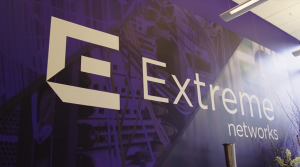The Cautionary Tale of IKON Office Solutions – Sound Familar?
![]() Sometimes the ‘golden handcuffs’ tarnish the other hands in the company…
Sometimes the ‘golden handcuffs’ tarnish the other hands in the company…
Thirteen years ago I worked at a small technology consulting firm, headquartered out of Columbia South Carolina, named The Computer Group. TCG was acquired by IKON Office Solutions, the copier company.
IKON then went on a spending spree over the next year acquiring many technology companies, largely small to mid-size systems integrators in a fairly classic channel roll-up strategy to build footprint. This was quite smart given the complexity of digital copier and printing systems coming to market in the mid 1990’s as well as the upside and opportunity to move into adjacent markets aside from their core paper distribution and copier sales and service divisions.
The problem came not in the vision, although I can say that some of the engineers did ask the question, “Ummm, we work for a copier company? Huh?”
When these companies were acquired almost every company was given an interesting choice – take some payment up front or take a bit smaller amount up front but if the company hits specific P&L targets there is a significant upside (between a 50% to 200% multiplier) that is paid if the targets are hit or exceeded.
Now, we all learned in Sales 101 that leveraged compensation plans tend to be highly motivational to the principals involved, and this case was no different. Each company was so singularly motivated to achieve their individual targets that the following happened:
![]() 1) Each group tried to keep their own identity
1) Each group tried to keep their own identity
Each group almost always referred to themselves by their ‘old’ name, and never as the identity of their new employer. They never integrated their identities.
2) Cross-Charging became commonplace
Each group started cross-charging the others for any internal resource sharing. This made it more costly to use internal ‘big company’ resources than it often did to hire your ‘own’ resources because the cost-basis was higher because the other groups wanted to make a profit on each other.
3) No tools integration
Their was no mandate to centralize IT resources, standardize on toolsets, etc. Each company did things their way, and used any mandate to integrate as an opportunity to complain how ‘corporate was slowing them down’ and was an excuse for why any earn-out targets were not achieved.
4) Internal Competition
Since there was significant overlap in product/services from each group, and no common positioning or strong hand at the helm the groups would compete with each other for customer opportunities. There was no strategy or consistency in the pricing models between the divisions, and we looked like 20 companies to the end-customer, not one.
5) Haves/Have-Nots
Their was pretty significant disparity as well between the equity distributions between those acquired and those hired. This led to a haves/have-nots schism in the organization as well. Many of the new hires would often ask a question I have heard repeated in other organizations where earn-out M&A was tried, “Why am I working so hard to make them so rich?”
The net result?
IKON is still a copier company, does a good job at it. But they closed the doors on the experiment of being a technology services company. It is not regarded as a ‘win’.
We can find many reasons why it did not work and I am certain there are other very valid opinions and reasons on why this experiment/investment did not yield the expected business results. The reason I home in on the most though is the earn-out M&A structure created a culture clash, especially when combined with product/services overlap, and lack of strong leadership.
I have seen recently other companies follow a similar model, and have seen the undercurrents of similar challenges. Know any?
A message from John Furrier, co-founder of SiliconANGLE:
Your vote of support is important to us and it helps us keep the content FREE.
One click below supports our mission to provide free, deep, and relevant content.
Join our community on YouTube
Join the community that includes more than 15,000 #CubeAlumni experts, including Amazon.com CEO Andy Jassy, Dell Technologies founder and CEO Michael Dell, Intel CEO Pat Gelsinger, and many more luminaries and experts.
THANK YOU









